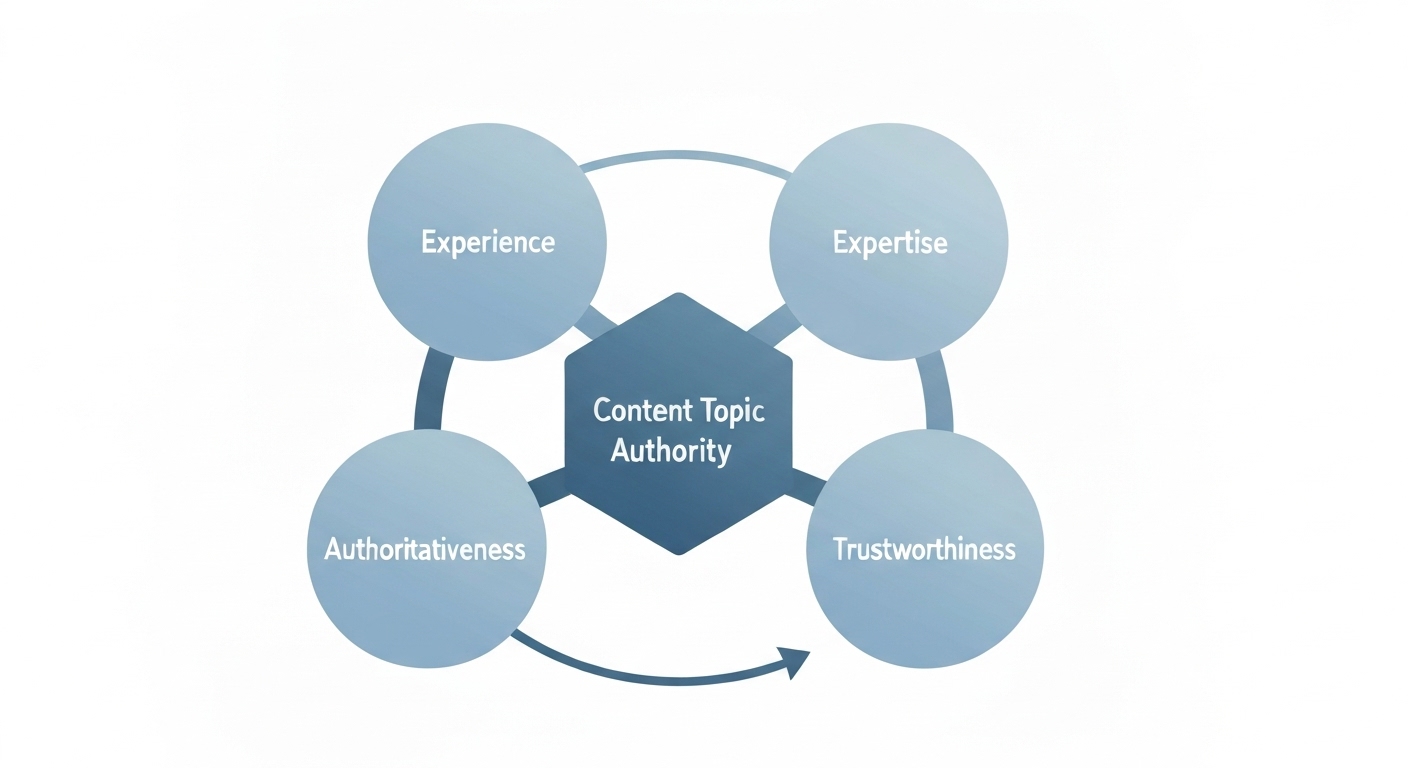What is Topic Authority ? A Comprehensive Guide
What is topic authority? It’s the perception that a website or content creator is a knowledgeable and trustworthy source of information on a specific subject. Achieving it significantly impacts search engine rankings, brand reputation, and audience trust.

Understanding What is Topic Authority
Topic authority goes beyond simply having a website; it’s about demonstrating deep knowledge and consistent expertise in a particular area. Search engines, like Google, prioritize websites that provide accurate, comprehensive, and reliable information. This is strongly related to the E-E-A-T principle (Experience, Expertise, Authoritativeness, and Trustworthiness). When you establish yourself as an authority, your website gains better visibility in search results, driving more organic traffic. It also strengthens user trust, leading to increased engagement and conversions.
The Difference Between Domain Authority and Topic Authority
While both domain authority and topic authority are important for SEO, they represent different aspects of a website’s online presence. Domain authority, a metric developed by Moz, predicts a website’s overall ranking potential based on factors like backlinks and website age. Topic authority, on the other hand, focuses specifically on expertise within a particular subject area. A website with high domain authority might rank well for a variety of keywords, but a website with strong topic authority will dominate search results for its niche. Focusing on topic authority allows you to become a go-to resource for a specific audience.

Why is Topic Authority Important for SEO?
In today’s competitive online landscape, establishing topic authority is crucial for achieving sustainable SEO success. Here’s why:
- Improved Search Engine Rankings: Search engines favor websites that demonstrate expertise and provide valuable content.
- Increased Organic Traffic: Higher rankings translate to more organic traffic from users searching for information related to your niche.
- Enhanced Brand Reputation: Being recognized as a knowledgeable source builds trust and credibility with your audience.
- Higher Conversion Rates: Users are more likely to engage with and convert on websites they perceive as authoritative.
- E-E-A-T Compliance: Google’s E-E-A-T guidelines emphasize the importance of expertise, authoritativeness, and trustworthiness, which are all core components of topic authority.
By focusing on building SEO authority, you can create a virtuous cycle where your website attracts more traffic, earns more backlinks, and further solidifies its position as a leader in its field.
How to Build Topic Authority: A Step-by-Step Guide
Building topic authority requires a strategic and consistent effort. Here’s a breakdown of the key steps involved:
1. Conduct Thorough Keyword Research
Start by identifying the keywords and topics that are most relevant to your niche. Use keyword research tools to discover what your target audience is searching for and identify opportunities to create valuable content.
2. Create High-Quality, In-Depth Content
Produce comprehensive, informative, and engaging content that addresses your audience’s needs and provides unique insights. Focus on creating cornerstone content pieces that serve as foundational resources for your topic area. Aim to provide more value than your competitors.

3. Optimize Content for SEO
Ensure that your content is properly optimized for search engines. Use relevant keywords in your titles, headings, and body text. Optimize your meta descriptions and image alt tags. Build internal links between related content on your website.
4. Build Backlinks from Authoritative Sources
Earning backlinks from other authoritative websites is a strong signal to search engines that your website is a trusted source of information. Focus on building relationships with other industry experts and creating content that is link-worthy. Consider guest blogging on relevant websites.
5. Engage with Your Audience
Actively engage with your audience on social media and through comments on your website. Respond to questions, provide helpful advice, and foster a sense of community. This demonstrates that you are invested in your topic and care about your audience’s needs.
6. Showcase Your Expertise
Highlight your expertise through certifications, awards, publications, and speaking engagements. This helps to build your credibility and establish you as a thought leader in your field. Consider creating a dedicated “About Us” page that showcases your team’s experience and qualifications.
7. Stay Up-to-Date with Industry Trends
Demonstrate your knowledge of the latest industry trends and developments. Regularly update your content to reflect new information and perspectives. This shows that you are committed to providing accurate and relevant information.
8. Leverage E-E-A-T Principles
Google’s E-E-A-T (Experience, Expertise, Authoritativeness, and Trustworthiness) guidelines are crucial for ranking well in search results. Make sure your content demonstrates these qualities by providing accurate information, citing credible sources, and showcasing your experience and expertise.

The Role of E-E-A-T in Building Topic Authority
Google’s E-E-A-T guidelines play a vital role in determining how search engines evaluate the quality and trustworthiness of content. By focusing on demonstrating experience, expertise, authoritativeness, and trustworthiness, you can significantly improve your chances of ranking well and building topic authority.
- Experience: Share personal experiences and insights related to your topic.
- Expertise: Demonstrate your knowledge and skills through well-researched and accurate content.
- Authoritativeness: Establish yourself as a credible source of information by earning backlinks from other authoritative websites and showcasing your expertise.
- Trustworthiness: Be transparent about your sources, provide accurate information, and address any potential conflicts of interest.
Measuring Your Progress
It’s important to track your progress and measure the effectiveness of your SEO authority building efforts. Monitor your search engine rankings, organic traffic, and backlink profile. Use analytics tools to track user engagement and conversion rates. Adjust your strategy as needed based on your results. Tools from flashs.cloud can help streamline this process. Also, track mentions of your brand and website across the web to gauge your reputation and influence.
The Benefits of Long-Term Topic Authority
Investing in building topic authority provides numerous long-term benefits, including:
- Sustainable organic traffic growth
- Increased brand awareness and recognition
- Improved customer loyalty and retention
- Stronger competitive advantage
- Greater resilience to algorithm updates
Conclusion
Understanding what is topic authority is vital for long-term SEO success. By consistently creating high-quality content, building backlinks, and engaging with your audience, you can establish yourself as a trusted source of information and achieve lasting results. Remember to focus on providing value, staying up-to-date with industry trends, and leveraging E-E-A-T principles. Visit Semrush for more information about SEO strategy and topic authority.
HOTLINE
+84372 005 899


